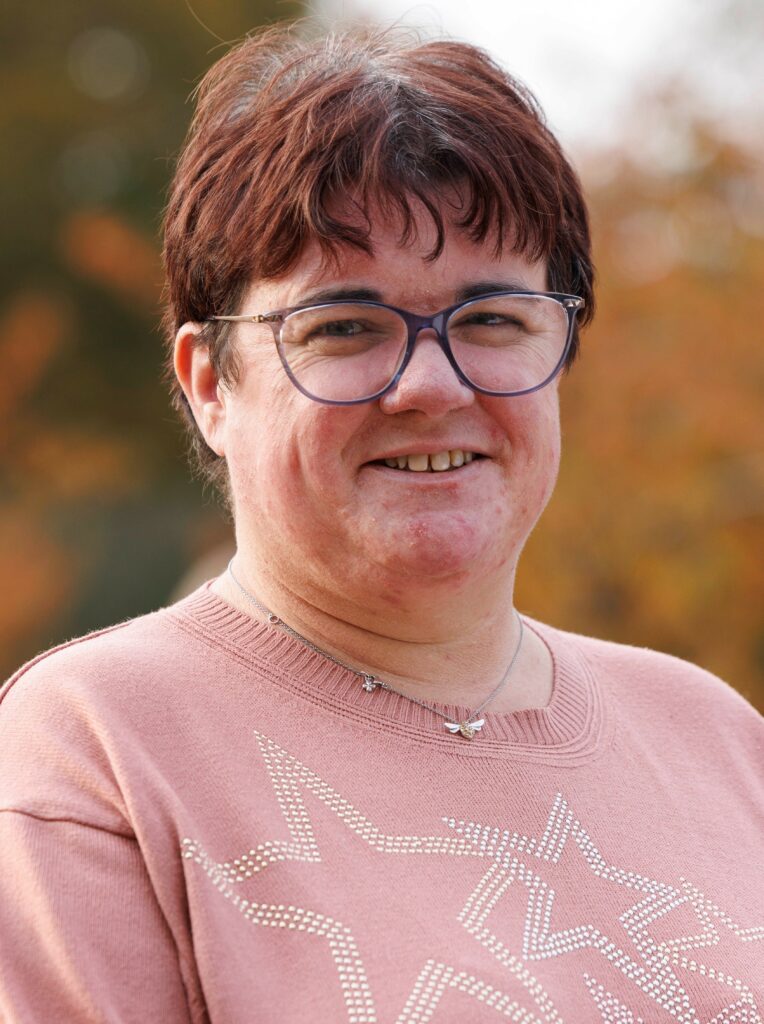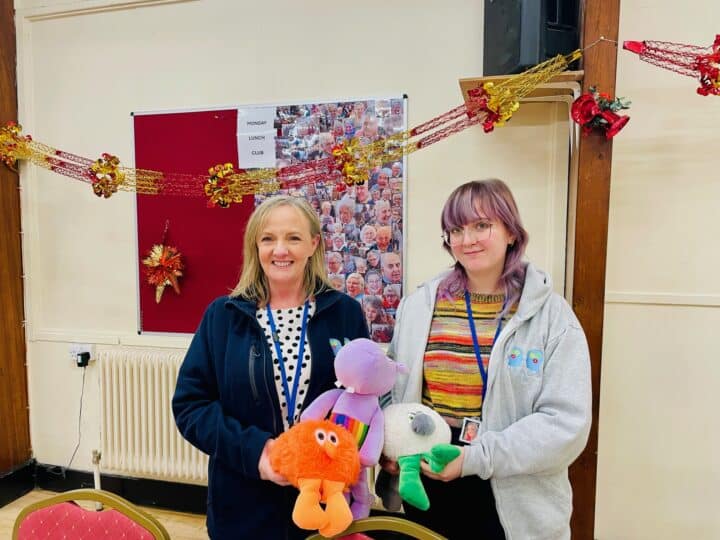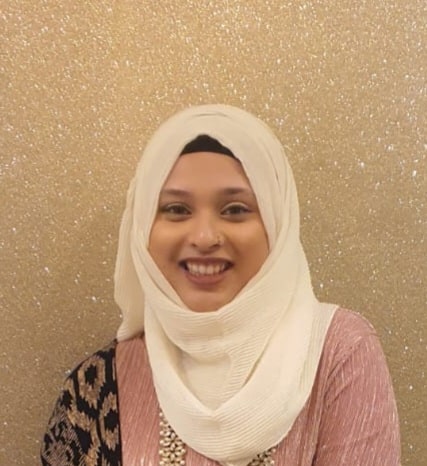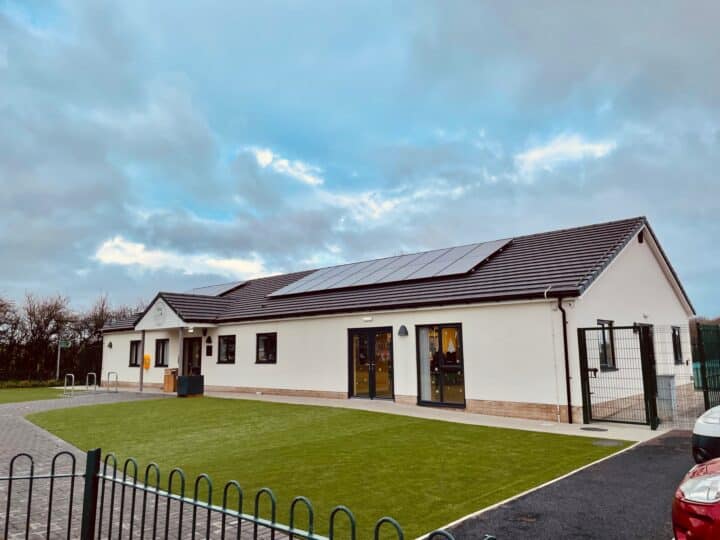-
About
About
Local Trust is a place-based funder supporting communities to achieve their ambitions.
Find out moreGo straight to…
< Back to main menu -
Big Local
Big Local
Big Local is an exciting opportunity for residents in 150 areas to create lasting change in their communities.
About the programme< Back to main menuSupport centre
Essential guidance, information and ideas for Big Local partnerships, to help you deliver change in your community.
Visit the support centre -
Other programmes
Other programmes
Find out how the principles of Big Local have inspired other programmes creating change in local communities.
< Back to main menuCommunity Leadership Academy
Supporting volunteers involved in Big Local projects to develop their skills and knowledge.
Find out moreCreative Civic Change
This new approach to funding enabled communities to use art and creativity to make positive local change.
Find out more
-
News and stories
News and stories
The latest news and stories from Big Local areas and beyond, exploring community power and resident-led change.
ExploreGo straight to…
< Back to main menuVoices of Big Local
Inspiring stories from the people making change happen in their communities.
Read more - Insights
- Policy

-
About
About
Local Trust is a place-based funder supporting communities to achieve their ambitions.
Find out moreGo straight to…
< Back to main menu -
Big Local
Big Local
Big Local is an exciting opportunity for residents in 150 areas to create lasting change in their communities.
About the programme< Back to main menuSupport centre
Essential guidance, information and ideas for Big Local partnerships, to help you deliver change in your community.
Visit the support centre -
Other programmes
Other programmes
Find out how the principles of Big Local have inspired other programmes creating change in local communities.
< Back to main menuCommunity Leadership Academy
Supporting volunteers involved in Big Local projects to develop their skills and knowledge.
Find out moreCreative Civic Change
This new approach to funding enabled communities to use art and creativity to make positive local change.
Find out more -
News and stories
News and stories
The latest news and stories from Big Local areas and beyond, exploring community power and resident-led change.
ExploreGo straight to…
< Back to main menuVoices of Big Local
Inspiring stories from the people making change happen in their communities.
Read more - Insights
- Policy

Changemakers: Bringing cultures and communities together
From fun summer events to new health and wellbeing initiatives, Katy Roberts from Boston Big Local shares how they are bringing people in the community together.
To mark over a decade of Big Local, our Changemakers series highlights the stories of some of the remarkable people delivering the programme in communities across England. In 2010, the National Lottery Community Fund embarked on a big, bold experiment, to put money directly into the hands of communities who had previously ‘missed out’ – leading to the creation of 150 Big Local partnerships. In the years since it began, through a period of austerity, a global pandemic, and a cost of living crisis, many of these partnerships have acted as an immediate lifeline to local residents, whilst also creating long-term change.
Katy’s story
Community building is something Katy Roberts lives and breathes. “The concept of residents being able to make decisions on what they need in their areas is something that really interests me,” confirms the plan coordinator for Boston Big Local in Lincolnshire.
Katy has lived in the town of Boston her whole life, working in the voluntary sector for close to 20 years. Prior to that she was a reporter on the local newspaper.
She took up her part time job with Boston Big Local in 2019, describing the role as a ‘middle point’ between the residents’ partnership and the local community. She listens to both groups and ensures the information travels both ways to secure the best outcomes.
Her previous experience of working for the local Council of Voluntary Services (CVS) and a housing association has given her a nuanced understanding of the landscape of local organisations. And in 2021, Katy was invited to speak about her experiences of the Big Local programme at the Conservative Party Conference.
Q: What are the challenges currently facing Boston?
Katy: We’re quite isolated and remote. We don’t have a lot of investment in the area and we get a lot of negative press. Even within the town, there’s a lot of people that want to put the area down. From the early 2000s, there was a sudden influx of migrant workers that came into the Boston area, including Portuguese, Polish, Bulgarian and Romanian people.
There was a shortage of skilled agricultural workers to work on the land, so they were brought in to work. Before the Big Local programme started, there was a lot of tension between the various different communities. Boston was chosen as the Big Local area because it was an opportunity to try to bring those communities together.
Q: Boston Big Local’s vision is to contribute to a ‘happy, vibrant area where people feel a sense of belonging’. Do you feel you’re succeeding?
Katy: We try to support all the different communities who live here. One of the big things we have done pretty much every year since we started is the ‘Boston’ beach. Just before the summer holidays begin, a beach is installed into Central Park in Boston.
It stays in place for the whole of the summer holidays and only gets taken down in early September. For two days we have The Beach Event itself, with donkeys, giant tortoises, beach volleyball and so on. We invite in organisations who all bring a free beach-themed activity.
We contract the council to run the event, which comes under the ‘building community spirit’ theme in our plan. The feedback we got on Facebook last year came from people of many different nationalities and different cultures saying how wonderful it was to have people coming together.
What I’m most proud of, actually, is the residents.”
Q: Where else do you feel that you’ve really been able to affect change in the Boston Big Local area, and how?
Katy: What I’m most proud of, actually, is the residents. In some ways, COVID-19 was a benefit to how Boston Big Local was run. The residents became so responsive, no idea was too silly.
They wanted to make sure that everybody we supported was able to carry on in some form. They gave them the flexibility to change their services, as long as they still fitted with the main aims and objectives.
Q: How did this responsive approach manifest itself?
Katy: One person saw an article on Facebook where a technology teacher at a local school was producing COVID-19 visors. We gave her some money so that she could buy the materials.
How could we get the community back together quickly? We spoke with different organisations who said that first we’d need to make sure that it was safe.
So, we bought hand sanitisers for the automatic machines in all of the community venues in the Boston Big Local area. We could act really quickly and often, we were the first to react.
This goes back to the residents making the decisions about what feels important to them and the community. They thought outside the box. I’m very proud of how they’ve grown over the last few years.
Q: During COVID-19, you also played a very important role in fostering this dynamic, responsive approach…
Katy: When we first started in lockdown, we began to think about how we wanted to plan the rest of the work. We reached out to the community to call a virtual coffee morning group together.
We wanted to find out what the different groups were doing and how they were coping with the pandemic. We kept the discussion quite open and what we found was that between those organisations, partnerships were being developed.
We brought people together, but we didn’t necessarily have an involvement with the projects that came out of it. We had between 20 and 30 people on these calls. I was nervous as hell, especially for the first one.
This goes back to the residents making the decisions about what feels important to them and the community.”
Q: Health and wellbeing was one of the themes in your current plan. Where have you made the biggest gains in this area?
Katy: One of the big success stories under that theme is the Samaritans group. In the 2019-21 plan, we gave them £5,000 over the two years to support with the delivery of suicide awareness training to groups and organisations based in the Boston Big Local area.
When we went into lockdown, the call for mental health training became quite pronounced. They advertised a Zoom session locally and got over 200 people signed up. As a result, they then recruited quite a few new volunteers.
People wanted to give back and support people going through lockdown. From the grant we gave them to deliver the training, they’ve become more sustainable. They’ve built the capacity to carry on once we’re not around anymore [the Big Local programme will end in 2026].
Q: And out of COVID-19, indirectly, came one of Boston Big Local’s most ingenious and successful initiatives: Boston Monopoly. What’s the story behind this?
Katy: It all started four years ago when two of our residents went to a pub quiz. A question came up about the spaces on the Monopoly board. Two of them got distracted and started plotting what would be on a Monopoly board about Boston. They brought the idea to the residents and said, ‘What do you think?’. We got loads of different prices but parked it because it was getting too complicated.
Then the chair, Richard, came to us just a few months before lockdown and suggested something along the lines of Boston Top Trumps. It was quite reasonably priced, so we put it on the agenda for the next meeting. Then COVID-19 struck. Richard, as part of his lockdown project, researched every listed building in the Boston Big Local area and found that there were more than 260 of them.
We put together a card game based on the buildings, got some funding from the Boston Big Local partnership and had a thousand packs made up, which we gave to charity shops and local groups so that they could fundraise.
They sold the packs of cards for £5 each and they sold out really quickly. Richard then thought maybe we should look at the Monopoly idea again, so we worked with an arm of Hasbro [the company that owns Monopoly] that does all its licensing.
They could not get their heads around the fact that we wanted to buy the games and then give them away to groups to sell. The council gave us some funding and we got 1,500 sets made.
We had to hire a van and deliver all of the boxes to the different local organisations and retailers on the Thursday before the game was officially launched on the Saturday. By Monday, most of the places were sold out, which meant we had effectively put just short of £45,000 into the local economy in three days.
The residents were presented with a Civic Award by the mayor, which was lovely because it had been quite a journey.
Interview by Dan Davies.
Read more Changemakers stories from the people delivering Big Local on our Voices page.
Our new website that shares our learning from the Big Local programme is now live
Our new website that shares our learning from the Big Local programme is now live


